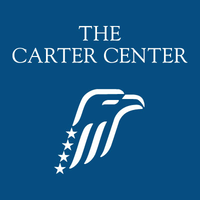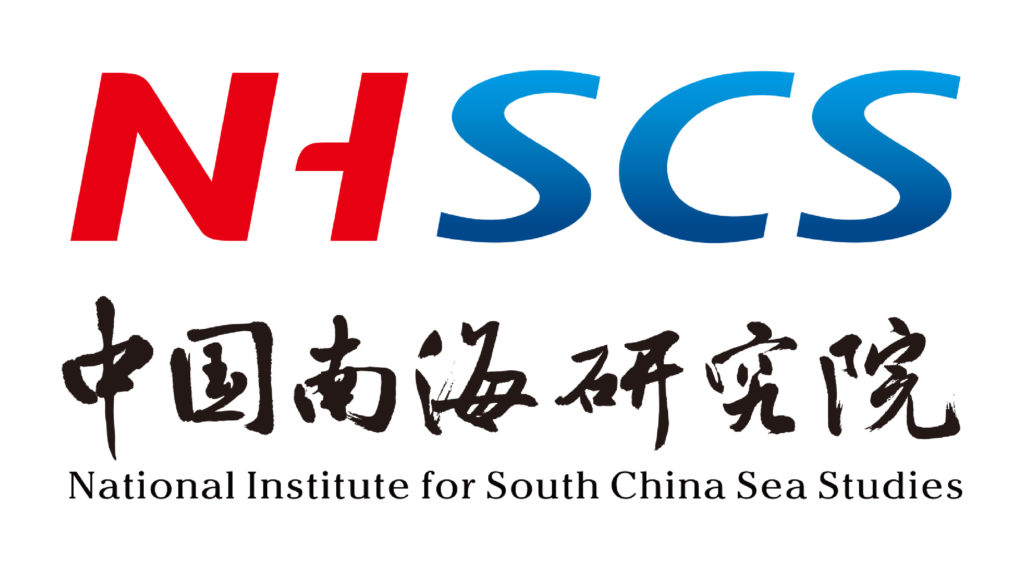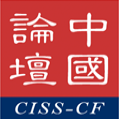2021 Annual Conference
Prospects for U.S.-China Relations Under the Biden Administration
Washington D.C. and Virtual
December 9, 2021
On This Page
Opening Remarks
On December 9th, the Institute for China-America Studies (ICAS) organized its 2021 Annual Conference. Given the continuing COVID-19 pandemic, the conference was conducted in a hybrid mode with a mix of in-person and virtual participation, and with a virtual audience tuning in from both sides of the Pacific. The conference was inaugurated with introductory remarks by the Chairman of ICAS’ advisory board, Dr. Wu Shicun. In his remarks, Dr. Wu lamented the fact that despite the hope that the newly-elected Biden administration would gradually return the U.S.-China relationship to a more normalized path of common cooperation, this had not turned out to be the case. He urged that the two sides to seek inspiration in the relationship that Chairman Mao and President Nixon forged nearly 50 years ago, and to inaugurate a new era of ‘stable, constructive and cooperative coexistence’ for the next quarter-century.
Keynote Dialogue
Dr. Wu’s remarks were followed by the highlight of the conference – a keynote dialogue featuring Madame Xu Xueyuan, Deputy Chief of Mission at the Chinese embassy in Washington, D.C., and Ms. Susan Thornton, ex-acting Assistant Secretary of State for East Asian and Pacific Affairs, now a senior fellow at Yale Law School & Brookings Institution. The dialogue was moderated by Mr. Gordon Houlden, an ex-senior Canadian diplomat and Director Emeritus of the China Institute at the University of Alberta.
In her initial submission, Madame Xu noted that the U.S.-China relationship, the most important bilateral relationship in the world, was at an important crossroads and that the virtual meeting between President Xi and President Biden in mid-November had lent an element of stability to ties. She hoped that concrete actions would follow from both sides to further stabilize and strengthen cooperation.
OPENING REMARKS:
- Dr. Nong Hong, Institute for China-America Studies
- Dr. Wu Shicun, Institute for China-America Studies
KEYNOTE DIALOGUE:
For its part, the Communist Party of China (CPC) had recently recorded its major achievements in an important history resolution at its 6th plenary session and has resolved to continue opening up and reforming its economic system. In her initial submission, Ms. Thornton called attention to a major contradiction in the international order today. On the one hand, Great Power international relations appears to be returning to a zero-sum orientation. On the other hand, the world faces a host of pressing transnational challenges, such as virus control and climate change, requiring all major countries to collaborate. She counseled that governments should not fetishize ideological competition but work together to provide global public goods and wisely manage their differences.
Madame Xu and Ms. Thornton engaged in a wide-ranging discussion on bilateral, regional, and multilateral issues ranging from the Taiwan Straits tensions to China’s COVID-19 quarantine protocols. Both acknowledged that Asia and the world are currently looking to the U.S. and China to provide constructive and concerted leadership to tackle the numerous challenges in their bilateral relationship, as well as the challenges to regional and global governance. Alluding to the spirit of Nixon’s Opening of China, Ms. Thornton wondered if China under President Xi’s consolidated leadership could, on this occasion, be the brave first-mover to reshape and reinvigorate bilateral ties – given that President Biden’s political space to reshape China ties for the better is much more constrained. For her part, Madame Xu requested the U.S. side to scrap the mutually defeating trade tariffs and commit to qualitatively better two-way people-to-people exchanges.
Panel I: U.S.-China Strategic Rivalry in the Biden Era
The first panel of the ICAS 2021 Annual Conference featured five senior U.S. and Chinese academic and think-tank specialists who each delved into the underlying drivers of the burgeoning U.S.-China strategic rivalry. It thereupon provided thoughtful insights on constructive ways forward.
There was a frank acknowledgment by both sides that neither Washington nor Beijing was blameless for the predicament that U.S.-China relations finds itself in, and that without remedial action, the two sides were headed on a collision course. The U.S., under the Trump administration, had demonized China, and the Biden team had done little to reverse course or display imagination to provide the ‘guardrails’ that it has taken to talking about of late. China’s conduct under President Xi was not much better, having engaged in a series of unwise measures across a wide range of issue areas ranging from cyber-espionage, to questionable loan practices as part of its Belt and Road Initiative, and to human rights violations that possibly even amount to crimes against humanity.
PANEL I: U.S.-China Strategic Rivalry in the Biden Era
MODERATOR: Gordon Houlden, China Institute, University of Alberta
SPEAKERS:
- Michael Swaine, Quincy Institute for Responsible Statecraft
- Robert Sutter, George Washington University
- Zhu Feng, Nanjing University
- David Firestein, George H.W. Bush Foundation for U.S.-China Relations
- Da Wei, Tsinghua University
An interesting perspective shared by the U.S. and Chinese specialists was the consensus view that China is seen within U.S. domestic politics as intent on displacing U.S. leadership in Asia and the world. It is the only country with the capacity (not necessarily the intention) to alter the U.S.’ way of life for the worse. However, this consensus viewpoint however invited, in turn, a diametrically opposing set of submissions. For U.S. panelists, the unprecedented rise of Chinese wealth and power was a reason why U.S.-China rivalry can be expected to endure into the future. The view that China’s rise has been predatory and directly at the expense of the U.S. has firmly entrenched itself within the American political establishment. By contrast, the Chinese panelists considered the basing of America’s China policy on U.S. domestic politics-led viewpoints and grievances to be an alarming development. China may be rising fast in the international system, but it is hardly a peer competitor of America, in their view. And for the U.S. to exaggerate China’s power and intentions within its domestic policy discourse and frame policy on this basis is unhelpful, to say the least.
This having been said, there was a broad consensus among U.S. and Chinese specialists that neither country presented an existential threat to the other. True, there were irreconcilable differences between the two sides. But neither was a threat to the other’s national survival at the end of the day. This should in theory at least make compromise easier if both sides can summon a bold, risk-taking leadership approach. ‘Managing irreconcilability’ rather than managing competition should conceptually, therefore, be a first-order priority for both sides, with active communications mechanisms established in this regard.
Panel II: U.S.-China Engagement on Trade, Tech and Climate
The second panel of the ICAS 2021 Annual Conference featured four senior U.S. and Chinese academic, think-tank, and private sector specialists who covered a broad range of bilateral and transnational issues areas, such as trade and investment, science and technology cooperation and competition, and climate change. A common theme emerging from the discussion was that reciprocal and common approaches on these bilateral and transnational issues could serve as a useful binding glue that sustains the bilateral relationship at the difficult moment that it finds itself at. There were a number of broad takeaways from the insightful observations laid out by the panelists.
PANEL II: U.S.-China Engagement on Trade, Tech and Climate
MODERATOR: Liu Yawei, Carter Center
SPEAKERS:
- Denis Simon, Duke University
- Anna Ashton, US-China Business Council
- Teng Fei, Tsinghua University
- Paul Triolo, Eurasia Group
First, despite the fact that U.S.-China relations are treading water at the macro-structural level, there is ample appetite for engagement at the less-politicized private sector and commercial exchanges level. The China market is critical for U.S. companies, and they remain more-or-less upbeat on future prospects. The preference is for more coupling rather than decoupling, although the skewed playing field regulatory framework in China, especially on the industrial subsidies front, needs to be leveled – and leveled expeditiously. Equally, there is ample appetite in China to work cooperatively to incubate climate change mitigation-related technologies and processes.
Second, the asymmetry in capabilities that once pervaded U.S.-China exchanges across their range of interactions is no longer a conceptually feasible foundation on which to base their future relationship. From science and technology (S&T) cooperation to trade and investment arrangements, both sides must exchange fresh agreement frameworks and commitments, preferably binding ones, that are conceptually couched in the language of parity and reciprocity. An asymmetric relationship can no longer stand. Both countries will have to learn to operate and engage each other from beyond their inherited comfort zones.
Third, an exaggerated notion of each other’s powers and intentions is absolutely unhelpful to the cause of resetting the bilateral relationship within firmer guardrails. America’s portrayal of China’s technological prowess, in particular, can sometimes veer widely off-the-mark, and framing it as such can be damaging to the interests of companies in both countries as well as to wider technology ecosystems. Finally, as parity gradually becomes a dominant characteristic in U.S.-China relations, both sides share a responsibility to reconceptualize their dialogue frameworks as well as introduce dedicated mechanisms to discuss the gamut of issues, including new ones such as digital issues. The Fourth Industrial Revolution that modern technology is spawning requires a commensurate policy platform of U.S.-China government-level engagement. From this engagement basis, carefully selected work streams could flow thereafter.
Overall, positive-sum cooperation in trade, technology, and climate can dim the harsher edges of U.S.-China strategic competition as well as provide solutions to global problems which, at the end of the day, are not resolvable without meaningful U.S.-China collaboration.
In Collaboration with:




